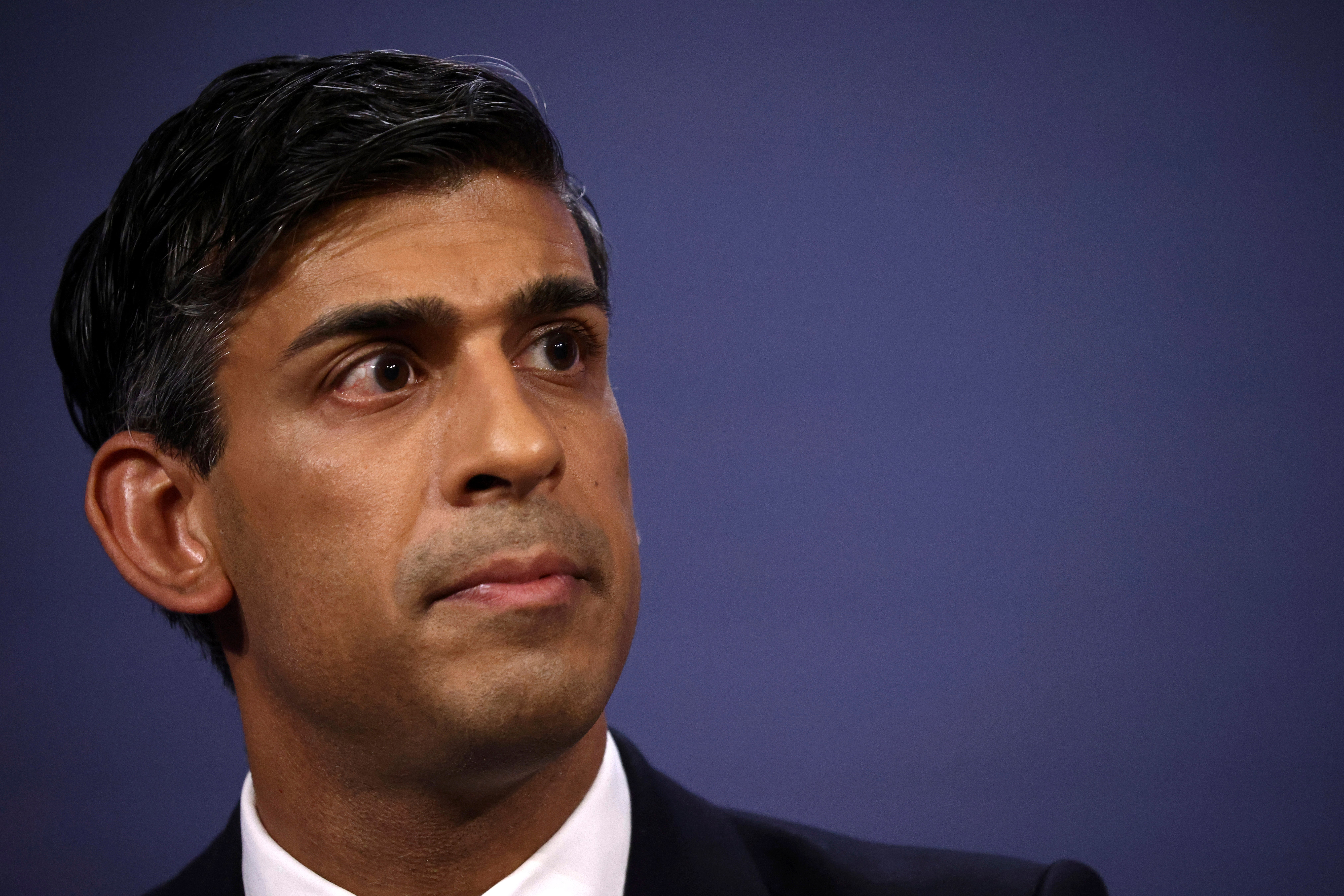How Sunak the statesman’s best-laid plans were thrown off course
As skies darkened at home, the prime minister hoped the Nato summit would offer him the chance to stand shoulder-to-shoulder with Ukraine for all to see. However, what transpired in Vilnius was far from what the PM intended, writes Politics and Whitehall editor Kate Devlin


No 10 had to bat away suggestions that a bout of gentle sledging between Rishi Sunak and his Australian counterpart during the Nato summit this week was stage-managed. Sources were quick to point out that the customary gifts exchanged between the two just happened to be photos of different moments of the Ashes series.
But wider efforts to coordinate the message emerging from the summit itself were blown off course, a scenario that could be repeated for Mr Sunak in a series of difficult by-elections this coming Thursday.
Even as world leaders descended on Vilnius, the conference was rocked by an outcry over Ukraine’s treatment from a furious President Zelensky.
In a sensational move, the Ukrainian leader tweeted that delays to Ukraine’s membership of Nato were “absurd”. He accused Nato of handing Russia “motivation” in its war on his country. He had even publicly expressed fears that Ukraine would be used as a bargaining chip in talks with its invader.
Zelensky’s message sent shockwaves through the summit. His presence had been designed to show that the military alliance was square behind Ukraine. Instead, the two-day trip to Lithuania exposed the growing faultlines in the relationship between Ukraine and the West, more than 500 days into the conflict.
For an international event so carefully crafted, as these summits always are, this was not what was supposed to happen. World leaders had decamped for two days to Lithuania’s quiet capital, full of large boulevards and pastel-coloured buildings, close to the border with Russian ally Belarus.
A city whose streets show signs for Minsk as a reminder, if one were needed, of just how close Nato and Russia are. In any rivalry between the Nato leaders and Ukraine, however, Vilnius itself made very clear whose side it was on.
The Ukrainian entourage received a hero’s welcome as thousands thronged the streets to catch a glimpse. Ukrainian flags outnumbered Lithuanian flags as they flew from businesses and homes and were worn as shawls by locals.
One building clearly visible from the summit carried a simple message spelled out in large capitals letter across its top: UKRAINE.
Inside the conference, Western leaders were trying to calm the waters.
At 7.30am on the second and final day, defence secretary Ben Wallace gave a briefing on Ukraine in a quiet side room off the main media centre.
He insisted Ukraine’s membership of Nato was now a question of “when, not if”.
But the elephant in the room was addressed when an American journalist asked if he was, after the events of the last 24 hours, maybe just a little relieved he had not got the top job at Nato after all?
Mr Wallace was creating his own headlines, however.
His revelation, not signed off by No 10 beforehand, that last year he had warned the Ukrainians that the UK was not Amazon when presented with a wishlist of weapons, made front page news.
The angry Ukrainians hit back that they had always been grateful for the support they received during the war.
As well as the wider Nato alliance, Mr Sunak could have done with some positive headlines from the trip, as mortgage rates are ratcheted up and his small boats plan fails to get started.
He faces a series of tough by-elections, which will do little to settle his MPs’ jitters about the next general election.
They have been triggered by Boris Johnson’s shock decision to quit as an MP, and are another sign of the legacy of the last prime minister haunting the current occupant of No 10.
Mr Sunak himself landed back in the UK just before 7pm on Wednesday to be taken straight to a ‘hog roast’ at Downing Street with his backbenchers, widely seen as an attempt to work on party morale.
Many Tory MPs say a bad set of results in the early hours of next Friday morning are “priced in”. But the atmosphere is tense. Some ministers have taken to openly joking they will be out of government next year.
As he left the Nato summit, President Zelensky said he had hoped that his faith in the organisation would be converted into confidence in it.
The prime minister can only hope that voters can find some faith or confidence in his leadership as they head to the ballot box on Thursday.






Join our commenting forum
Join thought-provoking conversations, follow other Independent readers and see their replies
Comments